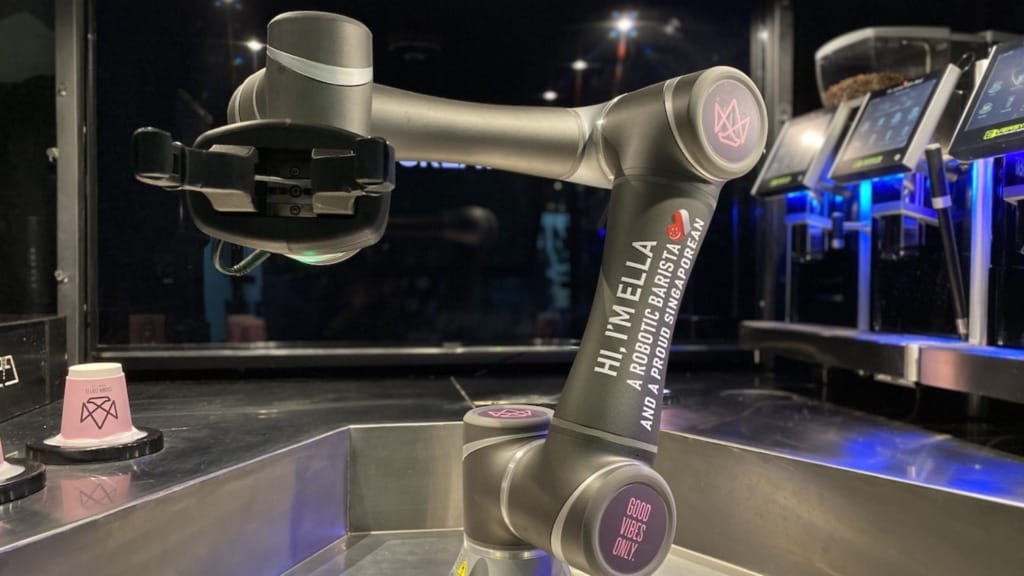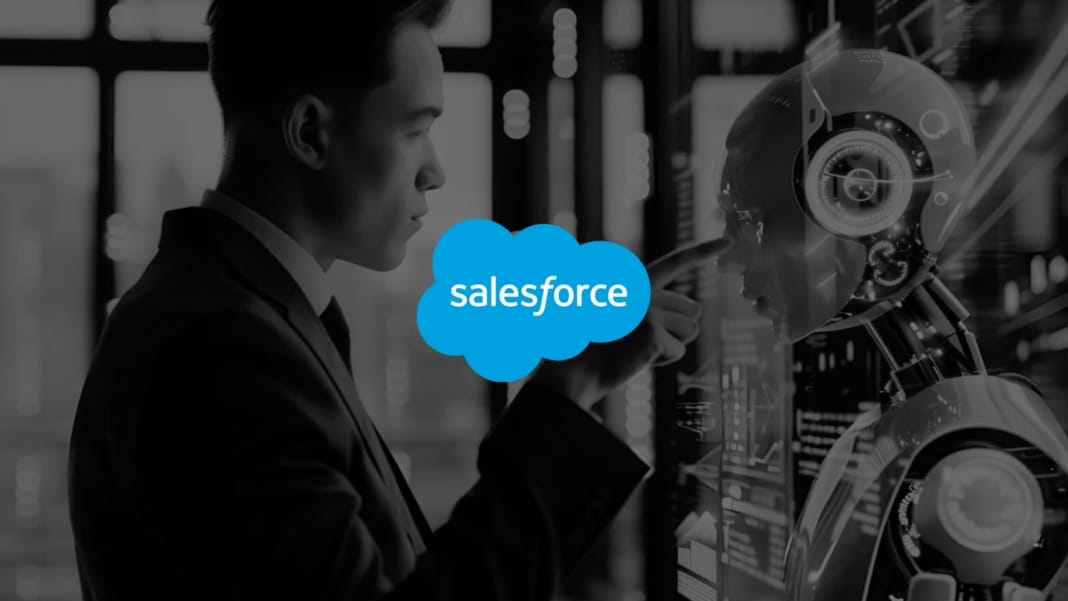Artificial intelligence has become a transformative force reshaping industries across the globe. The AI revolution is gaining a uniquely local flavour in ASEAN, a region known for its agility and innovation. By 2025, businesses are expected to transition from experimental deployments to the full-scale implementation of autonomous agents and specialised AI models. According to Sujith Abraham, Senior Vice President and General Manager, ASEAN, and Gavin Barfield, Vice President and Chief Technology Officer, Solutions, ASEAN, Salesforce, these advancements will drive new opportunities for growth, efficiency, and innovation.
The third wave of AI, introduced in 2024, has brought autonomous AI agents capable of making decisions and taking action without human intervention. “AI agents are a game-changer for businesses, allowing them to boost productivity, deliver personalised customer experiences and drive topline growth,” explains Abraham. As ASEAN businesses embrace this shift, they will move towards a future where humans and AI agents work together, leveraging data and action to achieve customer success.
This transformation is not just technological—it is strategic. ASEAN’s dynamic cultural and economic landscape makes it an ideal region for innovations such as language-specific AI models and applications designed to meet industry-specific challenges. Abraham highlights that “AI is ushering in one of the biggest technological shifts of our generation, creating new services, roles, and industries.” This localised approach is expected to attract global investment, nurture regional talent, and drive a vibrant AI ecosystem tailored to ASEAN’s unique needs.
From autonomous agents transforming customer relationships to robotics delivering immersive experiences, these Salesforce predictions provide a roadmap for organisations to navigate the AI-driven future. The time to adapt and innovate is now, as AI takes centre stage in shaping the next wave of business success across ASEAN.
1. Autonomous AI agents will redefine customer engagement
Autonomous AI agents will transform how businesses engage with customers, enabling personalised interactions at scale. These agents go beyond the limitations of earlier AI tools like copilots, which were restricted to siloed data. Unlike their predecessors, autonomous agents integrate structured and unstructured data—such as customer purchase histories and product information—providing actionable insights across the customer journey.

Businesses will see significant benefits. For example, a bank that analyses transactional data may initially conclude that most customers are SMEs with small spending. However, a deeper analysis by AI agents could reveal that these businesses distribute their spending across multiple banks. Implementing autonomous agents ensures consistent customer engagement, even at scale, ultimately increasing revenue and reducing churn.
Abraham points out, “It is extremely difficult to turn the workforce around to deepen engagements with all customers. Imagine if they implement autonomous agents to maintain consistent customer engagement without constant human oversight.” Operating 24/7, these agents unlock opportunities for deeper customer relationships while enabling human teams to focus on more strategic tasks.
AI agents also streamline sales processes by pre-qualifying leads, saving time and ensuring human teams concentrate on high-value prospects. This dual benefit of improved productivity and enhanced customer experience positions autonomous agents as a cornerstone of future business success.
2. Out-of-the-box AI solutions will accelerate implementation
Businesses that adopt out-of-the-box solutions will gain a competitive edge in the race to operationalise AI. Unlike DIY approaches, which can be costly and time-consuming, pre-built AI tools provide superior speed, deployment efficiency, and accuracy. These solutions allow organisations to focus on driving immediate impact and value from AI investments.
“Businesses that adopt out-of-the-box solutions can focus on AI deployment and achieve immediate impact and value,” says Abraham. Conversely, companies attempting to build their own AI tools often encounter hidden costs, delays, and slower realisation of AI’s potential. The ability to integrate these solutions seamlessly into existing systems will be key to their success.
A robust data foundation is equally critical. Organisations must unify structured data, such as customer transactions, with unstructured sources like emails and product details. This holistic approach ensures AI delivers accurate and contextualised insights. Abraham adds, “Having the right data foundation is also key to maximising ROI from AI investments.” Tools like zero-copy capabilities further optimise data preparation costs while enhancing scalability.
For ASEAN businesses, out-of-the-box solutions are an accessible way to accelerate AI adoption, enabling them to leapfrog traditional barriers and achieve rapid transformation.
3. ASEAN’s AI ecosystem will drive innovation
The rise of AI platforms in ASEAN fosters a new generation of developers, innovators, and solutions tailored to the region’s needs. From small language models (SLMs) supporting native languages like Singlish or Taglish to tools tackling challenges such as anti-money laundering, the region is poised for significant AI-driven advancements.

“Just as the invention of smartphones and mobile applications created a thriving ecosystem of app developers, the growth of AI platforms is fostering a new generation of AI developers,” observes Abraham. This wave of innovation will catalyse local talent, enabling the creation of bespoke AI solutions that resonate with ASEAN’s cultural and linguistic diversity.
With a population of over 650 million and a combined GDP comparable to major economies, ASEAN presents immense opportunities for AI-driven growth. The ecosystem will attract global tech giants and support the emergence of home-grown startups, creating jobs and shifting strategic roles from traditional tech hubs to the region.
By building an AI ecosystem prioritising localisation and inclusivity, ASEAN businesses can address specific regional challenges while positioning themselves as global leaders in AI innovation.
4. Workforce transformation will prioritise strategy
AI agents are set to transform the workforce by automating routine tasks, allowing employees to focus on strategic work that drives innovation and growth. As agents become increasingly integrated into business operations, employees will need to upskill, taking on roles that involve managing, optimising, and training these systems.
“This transformation mirrors the 1980s shift in banking, when staff moved from routine tasks like producing bank statements to customer service and financial advisory roles as automation took over,” notes Abraham. Similarly, modern employees will transition to strategic roles that require creativity, problem-solving, and industry expertise.
For example, a telecommunications company leveraging AI agents to handle customer inquiries at scale could empower its workforce to optimise AI deployments and improve customer experiences. Not only would this enhance service delivery, but it could also reduce operational costs by eliminating the need for additional infrastructure.
By blending human expertise with AI capabilities, businesses will create an agile workforce better equipped to navigate complex challenges and seize growth opportunities in an AI-driven economy.
5. Specialised AI models will enhance efficiency
New, highly specialised AI models, such as Salesforce’s xLAM (Large Action Model), are poised to revolutionise workflows by enabling autonomous actions. “Unlike traditional Large Language Models (LLMs), which excel at generating responses, xLAM models are designed for action and decision-making, allowing AI to autonomously execute tasks and manage workflows without requiring explicit instructions,” explains Barfield.
These models go beyond text generation, adapting their decisions to fit real-world business contexts. xLAM can proactively manage entire workflows, coordinating multiple agents to tackle complex, customer-focused processes with greater accuracy and reliability.
Small Language Models (SLMs) will complement this approach by addressing niche challenges precisely. “These models are trained on smaller but more reliable data sets and are effective at performing certain tasks. They are cheaper to run, to train, and often more accurate than the Large Language Equivalents,” says Barfield.
By adopting specialised AI models, ASEAN businesses can unlock operational efficiencies, reduce costs, and deliver tailored solutions that meet the specific demands of their industries.
6. Robotics will drive immersive customer experiences
As the fourth wave of AI innovation, robotics will transform how businesses connect with customers. These advancements will enable highly interactive and personalised engagements that combine physical robots with virtual avatars.
“Picture virtual avatars powered by AI agents, with heads that move, lips that smile, and expressions that react naturally during interactions,” suggests Barfield. Such technologies will create more engaging and lifelike experiences in environments such as retail, where customers can interact seamlessly with intelligent systems.

In industries like food and beverage, robotics will bring operational excellence and customer delight. “Imagine a robotic barista powered by an AI agent that can offer personalised drink recommendations based on a customer’s past orders—including details like sugar preferences—and prepare the drink instantly,” explains Barfield.
These innovations offer ASEAN businesses scalability and differentiation. By blending digital intelligence with physical presence, robotics will redefine customer engagement, setting new standards for immersive experiences.
Preparing for 2025

Salesforce’s predictions provide a roadmap for ASEAN businesses to navigate the transformative decade ahead. By adopting autonomous agents, embracing localised solutions, and fostering workforce agility, organisations can seize the opportunities AI presents.
As Abraham highlights, “The next year will see ASEAN businesses transition from AI experimentation to full-scale implementation.” The region’s unique diversity and economic dynamism position it as a leader in AI adoption, driving both regional and global innovation.
The time to act is now. Businesses that invest in AI-driven solutions, data readiness, and workforce transformation will secure their place at the forefront of an AI-powered future.





